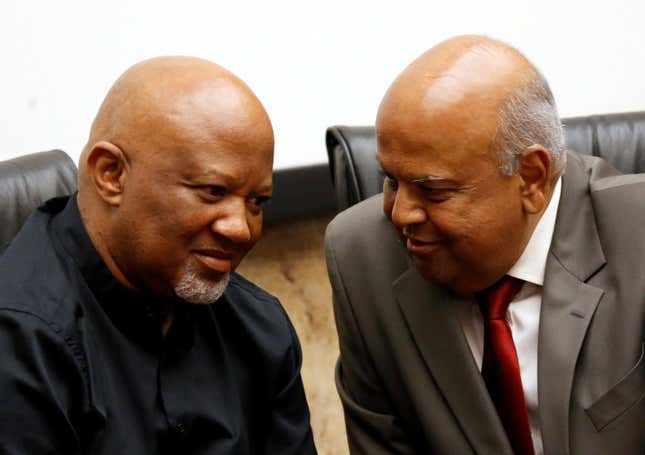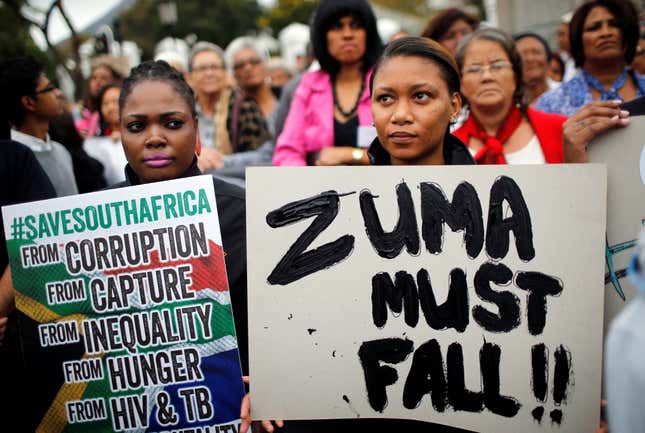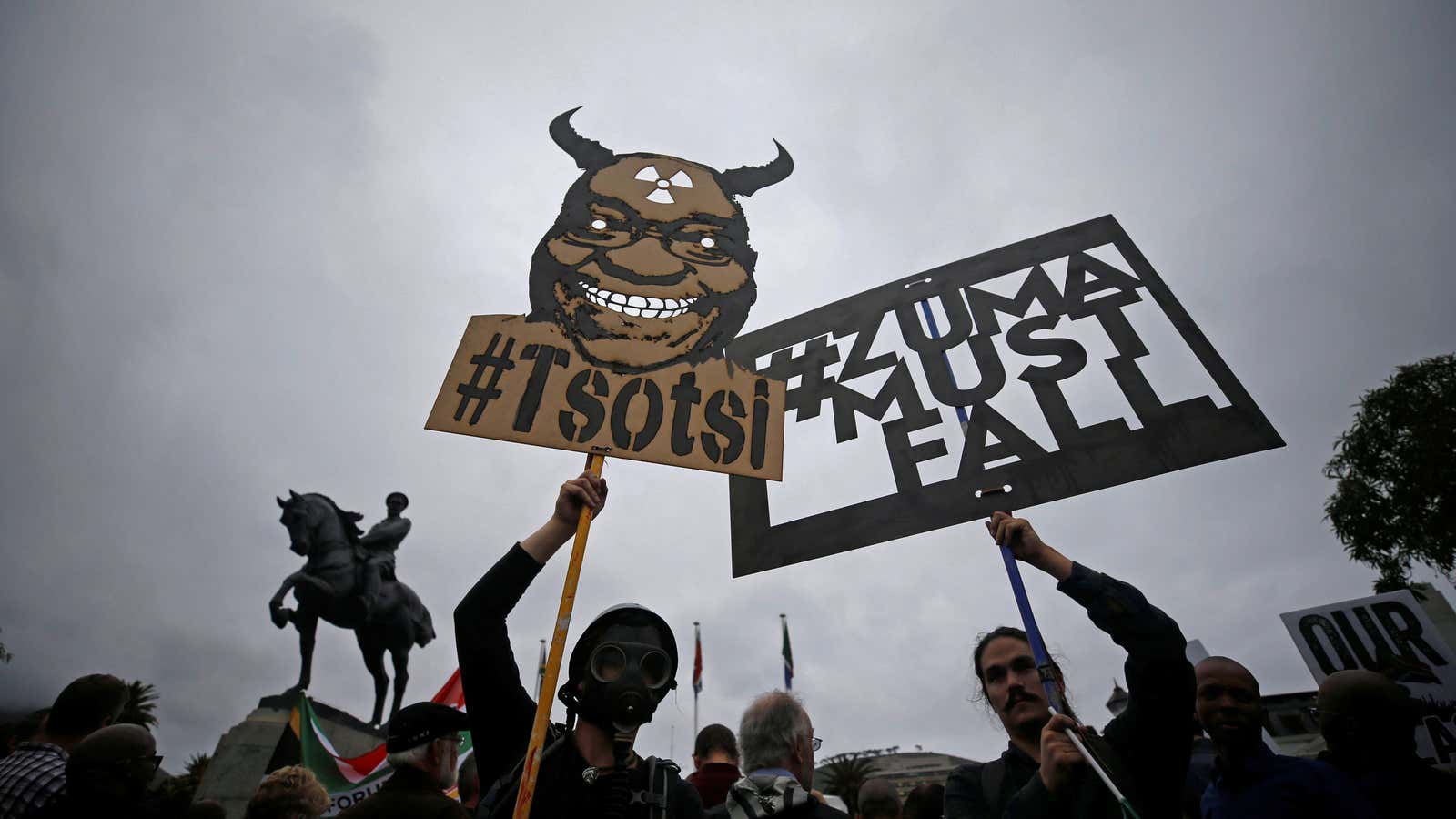South Africa’s government is in turmoil after president Jacob Zuma axed the finance minister and his deputy and shuffled 18 other cabinet members in a dramatic midnight move on Mar. 31.
The removal of finance minister Pravin Gordhan followed months of animosity between Zuma and Gordhan. Still, the market reaction shows an economic recklessness on the part of the president, and investors’ fears that the president and his cronies have strengthened their grip on the national treasury. The aftermath of Zuma’s shuffle also reveals a decision that was taken unilaterally, excluding even the ruling African National Congress.
The president
In a televised address to the nation, Zuma said he brought more women and young people into his cabinet “to bring about radical socio-economic transformation and to ensure that the promise of a better life for the poor and the working class becomes a reality.”
Behind the scenes, however, Zuma allegedly told senior party members that he was letting Gordhan go based on an intelligence report that Gordhan and his deputy Mcebisi Jonas were meeting with stakeholders in Europe and the US to plot against Zuma’s government.
Gordhan dismissed the intelligence report as “nonsense.”
The outgoing finance minster had just landed at London’s Heathrow airport when he received a text message from the presidency telling him to come back South Africa, immediately, he said. He was in the UK to meet with investors and ratings firms to assure them South Africa’s economy was on the right track. Instead, he was replaced by home affairs minister Malusi Gigaba.
The rand
The South African rand fell as news of the shuffle began to circulate, and dipped sharply after the official announcement in the early hours of Friday morning. When the Johannesburg Stock Exchange opened, the rand was 8% weaker against the dollar, the sharpest decline since 2015 when Zuma fired previous finance minister Nhlanhla Nene. South Africa’s major banks saw their share prices decrease by more than 5%, recovering later in the day.
South African bonds were traded in record volumes as investors anticipated a ratings downgrade in the coming weeks, the Financial Times reported. Still, the market reaction was less volatile than in 2015 when Zuma first axed a finance minister. This time, the markets were warned by the continuous rumors and political turmoil surrounding Zuma and Gordhan.
The party
The response within the ANC was more volatile though, revealing deep divisions within the party of Nelson Mandela. Deputy president of the country and the party, Cyril Ramaphosa, told reporters he objected to the axing of a “a person who has served our country with such distinction” calling it “unacceptable.”
Another powerful ANC politician, secretary general Gwede Mantashe said the party’s “top six” had no say in drafting the list that included 20 names. The party’s tradition of debate was ignored when Zuma presented a list “developed somewhere else.”
“Areas where ministers do not perform have not been touched,” Mantashe told a talk radio station. “Ministers have been removed, the majority of them are performing ministers.”

The people
Gordhan, however, exhibited more calm. He and Jonas delivered a lengthy press conference, surrounded by treasury staff who sang anti-apartheid struggle anthems to the outgoing officials.
Jonas, who famously walked away from a $44 million bribe, warned that the country was at the kind of “crossroads” in which countries take a sharp turn and may never return to the right path. He told South Africans to look at the State of Capture report again, which outlined the extent of influence Zuma’s friends, the Gupta family, had on cabinet.
“Some of the events that are happening in the country are contrary to the dream we had for South Africa,” he said. “As South Africans you have a responsibility to connect the dots.”
Protestors have already begun to mobilize, organizing a march on to the national treasury office in Pretoria. The organisers of the march, The Save South Africa Campaign and recently formed South African Federation of Trade Unions, called Zuma’s decision “a coup against the people of this country.”
In parliament, opposition parties plan to seek a motion of no-confidence against Zuma. Opposition leader Mmusi Maimane said he already received messages of support from ANC members who sad they would side with the Democratic Alliance. They also plan to approach a court to stop the searing in of the new ministers.
Other opposition parties, including the Economic Freedom Fighters, the Congress of the People and the United Democratic Front approached South Africa’s Constitutional Court on March 30, asking it to force parliament to impeach Zuma on the anniversary of the court’s findings that he broke his oath of office when he used state funds to build his private compound. The court will decide whether it will hear the matter at all.

As for Gordhan, he’s already called to wish Gigaba and his new deputy luck and will meet with them on Monday for a formal handover. He plans to remain a member of parliament, and perhaps visit Zuma soon and “have a cup of tea and have a chat.”
To South Africans anxious about the future he said, “Organise!”
